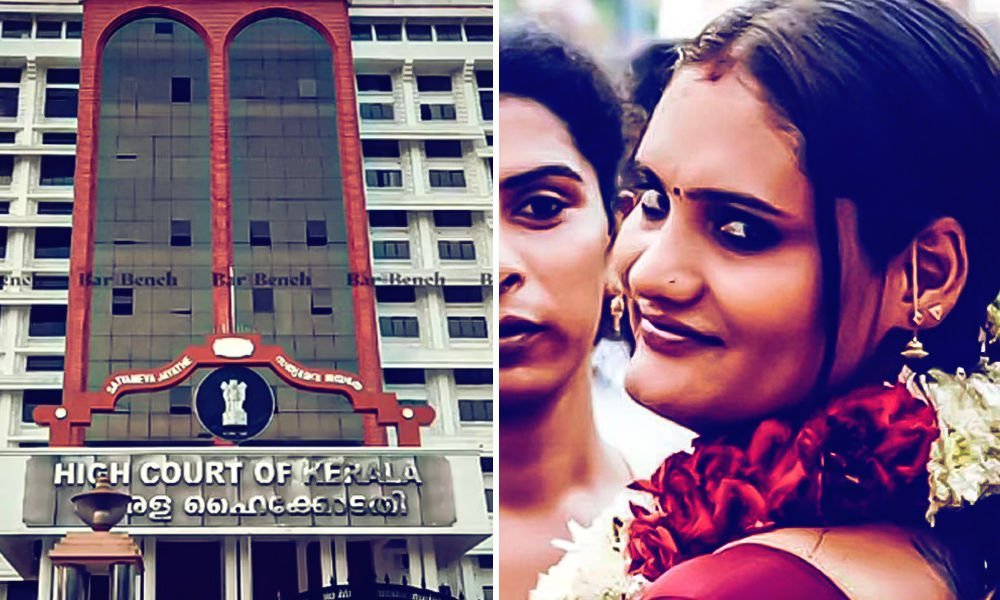When we were born, we were given a gender identity, either as girls or boys. Ignoring other gender identities; we were set for life, either to grow up as a woman or a man. As an impact of this social conditioning, Haneefa, a transgender person who sought admission to the National Cadet Corps (NCC), was denied the same for being a member of the transgender community.
She filed a writ petition in the Kerala High Court opposing Section 6 of the National Cadet Corps Act, 1948 (hereinafter NCC Act), which allow only ‘males’ or ‘females’ to enrol cadets. Haneefa qualified for admission on the grounds of her gender identity as a female because the NCC did not allow admission for transgender persons.

The petitioner contended that the inclusion of sexual minorities as transgender individuals is critical in combating the rampant marginalisation and bigotry they face.
The petitioner contended that the inclusion of sexual minorities as transgender individuals is critical in combating the rampant marginalisation and bigotry they face. Haneefa has undergone two gender reaffirming procedures and has an identity card under the Kerala Transgender Scheme. The Ministry of Defense had claimed that it should not stimulate a transgender person because this would undermine the NCC Act.
In November 2020, when the NCC notified the High Court that there is a lack of legal provisions for transgender persons to join the NCC, the court took exception to that stance and emphasised that it is contrary to Kerala’s Transgender Policy. The court also ordered the university authorities to keep Haneefa’s seat vacant until the writ petition is disposed of.
Also read: 14 Queer Moments That Made 2019 Memorable
Justice Anu Sivaraman, who delivered the order, said that “The transgender person not only has the right to be recognised as a transgender person, but also has a right to self-identity.” The NCC could not justify refusing to admit the respondent to the unit on the grounds of an identification card acquired by the applicant. Further, Justice Sivaraman noted that “Petitioner is entitled to enrolment in the NCC Senior Girls Division and denial of the appeal of the petitioner for such enrolment is unsustainable.”
In 2014, the Hon’ble Supreme Court, in the landmark judgment of NALSA v. Union of India, recognised transgender as the third gender of society. However, Section 6 of the NCC Act provides appointment for only male or female; therefore, the NCC Act contradicts with NALSA judgement and also with Articles 14, 15 and 21 of the Indian Constitution, which provides for equality before the law and forbids discrimination based on gender and other social criteria.
After listening to all the contention, the Hon’ble Kerala High Court ordered that the applicant Haneefa is eligible to engage in the screening process based on an application that had already been lodged. Therefore, when the Supreme Court has recognised transgender people, and the State of Kerala also takes a proactive move towards the inclusion of trans persons in educational establishments and workplaces, the NCC, which falls under the Ministry of Defense, cannot refuse them the right to be its equal member.
The Hon’ble Kerala High Court has further directed that section 6 of the NCC Act needs to be amended within six months to make it constitutionally valid. The amendment should mandatorily add transgender persons along with male and female in the NCC Act.
Also read: Movement Lawyering As A Tool To Articulate Feminist Values And Goals
The question that arises here is, if transgender people have been given rights in some aspects, why are other aspects being neglected? It is necessary to note that transgender people should be given equal opportunity in all aspects of life, such as housing, marriage, education, employment etc.
School textbooks should be redesigned to acknowledge different genders’ existence because our textbooks are the base of our education and our society’s understanding.
When the Constitution itself provides for ‘Equality for all’, what we need is more people like Haneefa, who are questioning arbitrary and archaic conventions. Kerala High Court’s order took the initiative, and it may act as a precedent for several other acts. The legislatures’ positioning has to be checked to make it mandatory to add all genders in them. This case acts as a pathway to amend all the flawed legislatures.
If we want to achieve equality for all, then it is not only the Indian Judiciary that needs to work, but it is also all of us as part of this society. School textbooks should be redesigned to acknowledge different genders’ existence because our textbooks are the base of our education and our society’s understanding. In schools, we are taught only two genders, notably in the English language, we have actor-actress, waiter-waitress or host-hostess etc. We need to change the way we label or name the roles and should start using gender-neutral labelling.
Also read: Book Review: Sex And The Supreme Court Edited By Saurabh Kirpal
Let me introduce you to the word ‘they’; it is used as the third person plural pronoun. ‘They’ are likewise utilised as a sexually neutral particular pronoun. We must start working towards a society that does not differentiate based on gender but brings out the message that we are all equal regardless of our gender.
In India, the right to gender equality cannot be just written or said; every possible effort should be made by all the pillars of democracy to provide rational and equal treatment to all. Thus, it is time to wake up to reality now that transgender people are as equal as you are.
Chetna is a student at University of Petroleum and Energy Studies, Dehradun, pursuing BBA LLB(Hons.), and founder of JustVocates Law Journal. You can find Chetna on Linkedin and Instagram.
Featured Image Source: ScoopWhoop




